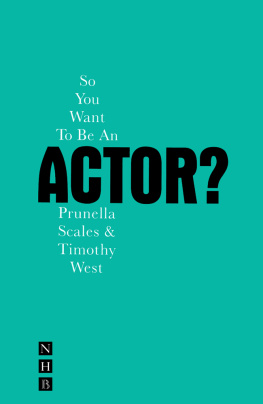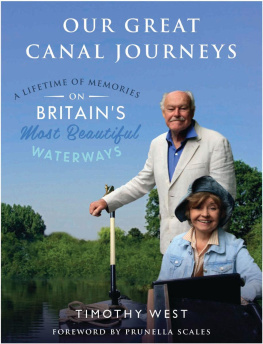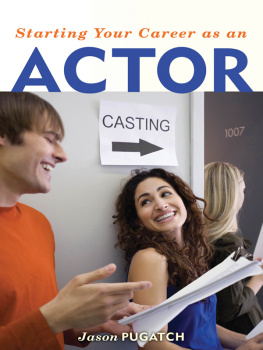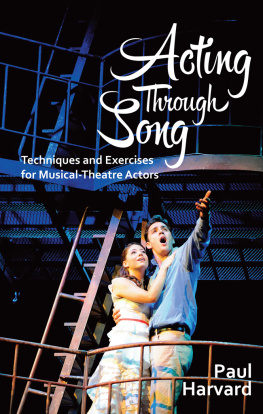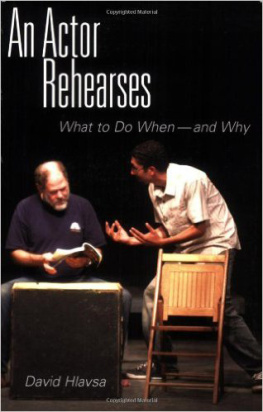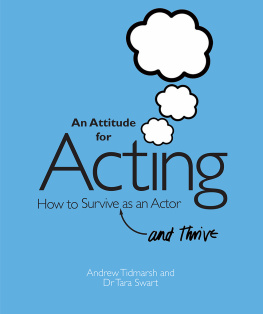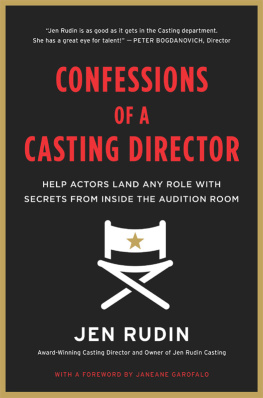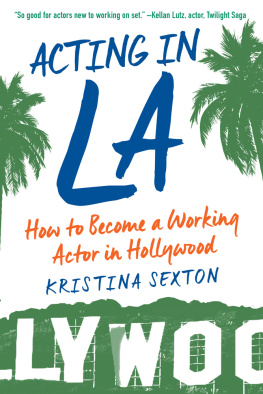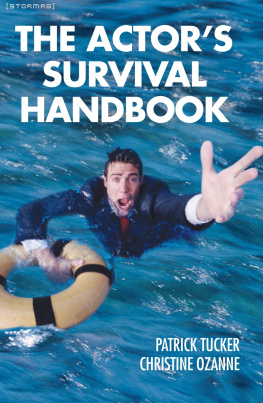SO YOU WANT TO BE AN ACTOR?
Prunella Scales and Timothy West

NICK HERN BOOKS
London
www.nickhernbooks.co.uk
CONTENTS
For the aspiring performer, there is no such thing as an absolute rulebook, no reliable common counsel. No two actors think alike, so what the undersigned pair have to say may often be mutually contradictory. Some of the advice may be bad. Some of it, on the other hand, may be so good that we wish we had taken it ourselves. But at least it has no pretence to canon law its simply a set of individual opinions born of an aggregate of a hundred years in the business.
Prunella Scales
Timothy West
NOTE
As you will see, the two authors alternate throughout the book, distinguished one from the other by different typefaces.
This is Prunella Scaless voice.
And this is Timothy Wests voice.
I
PREPARATION
FIRST THOUGHTS ABOUT BECOMING AN ACTOR
What gave you the idea? Did you go to the theatre much as a child? The cinema? Watch a lot of drama on TV, and wish you were doing it? Did you do many plays at school, or with amateur groups, and found you liked it, or were quite good?
All these are perfectly valid reasons for trying to go into the business. But above all, dont do it as Second Best.
We will not insult the obvious intelligence you have displayed in buying this book by supposing that you believe the life of an actor is one long round of companionable jollity, a passport to fame, fortune, free sex and fashionable restaurants. It could be that you hold a more pragmatic view of your likely development: starting as a badly paid, unknown and unappreciated small-part player in some far-flung theatre never visited by casting directors, gradually getting better parts, achieving a modest foothold in television, developing by sheer hard work into someone who might one day be employed by the National Theatre or the RSC.
That sounds logical, but Im afraid it very seldom works like that. No, your development will largely depend on luck, fashion, who you know, what you look like, and the general state of the business. Its tough, but there it is. HOWEVER, before you cast this book away in despair talent comes into it somewhere. So does your ability to work hard and variously, and to be easy to get along with.
Think very hard about it. Unemployment statistics in the profession are hard to ascertain accurately, but a recent Equity survey showed that only some 56 per cent of members earned less than 10,000 a year from performing, while around 35 per cent worked fewer than 10 weeks. Of course, thats only Equity members (more about that later), and, among them, only those who responded to the survey.
If you honestly feel that you will have difficulty coping with lengthy periods of hardship and frustration, then you should seriously consider the alternative option of taking what my father (who worked in the theatre all his life) used to call a Proper Job. Then you can join one of the better amateur companies and carry on acting in your spare time. This is what I did, when I tried for a time to do a Proper Job. So what went wrong, you ask? Well, I simply found that my after-hours dramatic activity was eating up most of my energy, enthusiasm and, indeed, thought. So it seemed reasonable to try and get paid (modestly) for what I clearly cared about most.
The British actress Athene Seyler, in her book The Craft of Comedy (get it, if you havent got it), refers to an imaginary friend making the leap from amateur to professional theatre: William is marrying his mistress, as it were, and what has up till now been simply delight in the expression of his love for her, will turn into staid responsibility and monotony, with all the other cares attendant upon married life.
HOW TO GO ABOUT IT
The best advice I could give a young person wanting to be an actor is, Finish your education. Dont go to a Child Acting School, but get as broad an education as you can, and dont do Drama as an academic subject. A professional actor doesnt need to know about Drama, but about Life. You need to observe and understand real people. If you go on to university, read English, History, Music, a foreign language, or even a scientific subject. Do as much acting as you can in your free time or out of school and university hours. An actor has to understand the circumstances and mind-set of every character he plays, so the fuller his experience and knowledge of people, the better.
If you plan to allow yourself a gap year between school and university, this could well be used as an opportunity to broaden your knowledge of life and society, and to learn more about the sort of characters you hope to play as an actor. Get a job where you meet lots of different people, and which ideally gives you the chance to save some money for the future.
I have an ambivalent attitude to the study of Drama at university level. The late Professor Glynne Wickham, who founded the first-ever Drama Department at a British University (Bristol), used to greet his new students by telling them that if they had any idea of becoming actors then they shouldnt be there at all they should be getting vocational training up the road at the Bristol Old Vic Theatre School. His own Department was, he maintained, properly for the use of academics, writers, artistic directors, theatrical historians, dramaturgs and critics.
Wickham, who knew perfectly well that many of his students would go on to become actors, was being very shrewd. Among the alumni of his time at Bristol are in fact some of the most distinguished figures in our business. That distinction could well be due to their having been able to share their early adult life with students of every kind of subject: yes, real people.
TO TRAIN OR NOT TO TRAIN
Forty years ago, the shrinking number of repertory theatres in this country still offered a core of actors continuous employment throughout a season, or perhaps a whole year, sometimes even longer. People starting their careers in one of the better Reps therefore had the opportunity to cut their teeth on the language of Shakespeare, Congreve, Sheridan, Wilde, Shaw, Coward, Rattigan and Agatha Christie, as well as translations of Chekhov, Ibsen and Molire. But learning the job just by doing it is no longer a real option, and only enrolment at a Drama School can provide some measure of that varied experience.
Drama Schools nowadays provide full tuition in performing before the camera and the microphone as well as on stage. However, there is a feeling among some senior television producers today that drama training of any kind works against the colloquial naturalism demanded for popular soaps, and that actors for such programmes are better recruited directly off the street.
This is fine, if you are prepared to go on doing that sort of thing for the rest of your life (or until the producers get bored with you), but if you later feel a thirst to explore different kinds of writing, perhaps in the live theatre, you could find yourself in difficulties given the vocal and physical scale, along with the stamina and preparation necessary to sustain a performance over two and a half hours.
This can only be learned by practice, and you may wish youd gone to Drama School after all.
I didnt go to Drama School, but Pru did.
It was the remarkable, though short-lived, Old Vic Theatre School in London, run by Michel Saint-Denis, George Devine and Glen Byam Shaw. At the age of seventeen and two months, with my very thick glasses and pigtails, I didnt have a very good time there, but the training itself, based on Stanislavski, was illuminated for me some years later at The Herbert Berghof Studio in New York, run by the brilliant actress and teacher, Uta Hagen more of this later.

